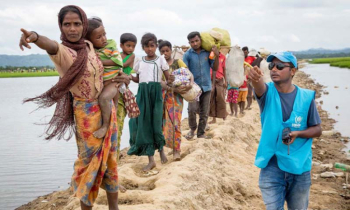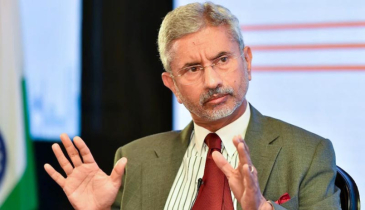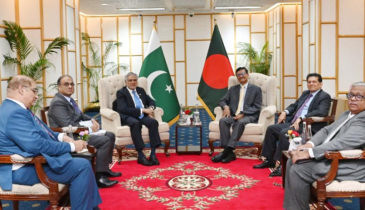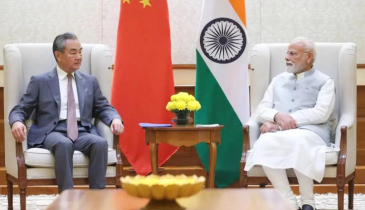Prof. Yunus places 7-point roadmap for Rohingya repatriation
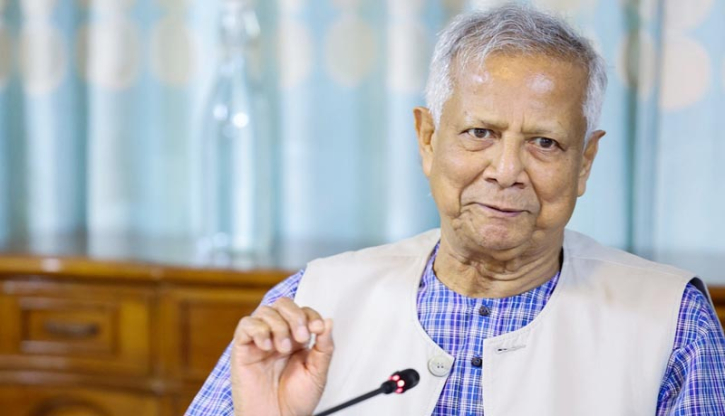
Bangladesh's Chief Adviser Prof. Muhammad Yunus on Sunday (25 August) presented a comprehensive seven-point roadmap aimed at ensuring the speedy, safe, dignified, voluntary, and sustainable repatriation of Rohingya refugees to their homes in Myanmar’s Rakhine State.
Speaking as the chief guest at the Stakeholders’ Dialogue in Cox’s Bazar, Yunus urged the international community to move beyond rhetoric and act decisively.
“We must not be held hostage to mere rhetoric. The time for action is now,” he said, stressing that the Rohingya crisis is not just Bangladesh’s responsibility but a shared global obligation.
Keeping the Rohingya Crisis on the Global Agenda-
Yunus emphasized that the plight of the Rohingya people must remain a priority for the international community until a durable solution is achieved. He recalled his joint iftar earlier this year with UN Secretary-General António Guterres and over 100,000 Rohingyas in Cox’s Bazar during Ramadan, noting that the refugees had expressed a clear and urgent desire to return to their homeland.
A minute’s silence was also observed at the dialogue to mark Rohingya Genocide Remembrance Day, followed by the screening of a documentary highlighting atrocities faced by the community.
Yunus’s Seven Proposals-
Prof. Yunus’s roadmap outlined the following steps:
- Right to Return: Guarantee the immediate, voluntary, safe, and dignified repatriation of Rohingyas to Rakhine State.
- Sustained Aid: Ensure long-term humanitarian support by fully funding the 2025–26 Joint Response Plan, addressing critical aid shortfalls.
- End Violence: Demand that the Myanmar military and the Arakan Army halt all violence, guarantee Rohingya security, prevent fresh displacement, and allow internally displaced persons (IDPs) to return home.
- Inclusive Dialogue: Create an institutional platform for dialogue among communities and stakeholders to rebuild trust, restore rights, and foster reconciliation.
- Global and Regional Cooperation: Mobilize ASEAN, neighboring countries, and the wider international community to strengthen regional peace and curb cross-border crimes, including human trafficking.
- Opposition to Ethnic Cleansing: Build a united stance against ethnic cleansing and recalibrate diplomatic and economic relations with Myanmar and other conflict actors to ensure accountability.
- Justice and Accountability: Reinforce proceedings at the International Court of Justice (ICJ) and the International Criminal Court (ICC) to secure justice for genocide and crimes against humanity committed against the Rohingyas.
A Call for Urgency and Justice-
Yunus underlined that since the crisis originated in Myanmar, the solution must also be found there. He urged world leaders, institutions, and civil society to act collectively to end the prolonged suffering of the Rohingya people.
“All parties must act to end the crisis with greater resolve and without further delay. Your solidarity with the Rohingya voice could be a beacon of hope, reversing their marginalisation and persecution as the first step toward their safe return,” he said.
Concluding his remarks, Yunus appealed for justice, accountability, and solidarity, saying:
“Let us all join hands and declare our determination to contribute to their dignified return, ensuring both justice and accountability for the crimes committed.”
Bangladesh currently hosts more than 1.3 million Rohingya refugees in Cox’s Bazar and Bhasan Char, most of whom fled a brutal military crackdown in Myanmar in 2017. While Dhaka has consistently called for repatriation, efforts have stalled amid continued violence in Rakhine and political instability in Myanmar.
The Cox’s Bazar dialogue is seen as a preparatory step toward the high-level international conference on the Rohingya crisis scheduled for September 30 in New York, where nearly 170 countries are expected to participate on the sidelines of the UN General Assembly.
.png)



